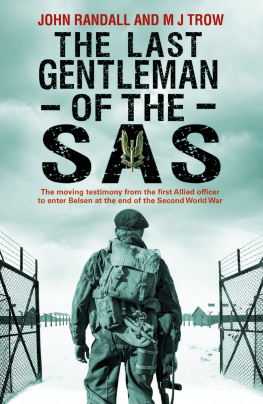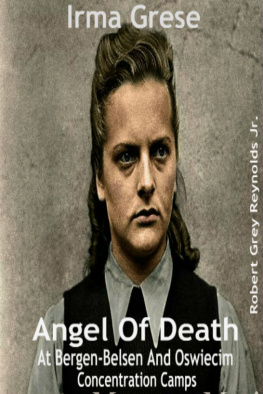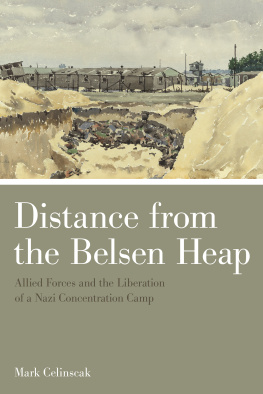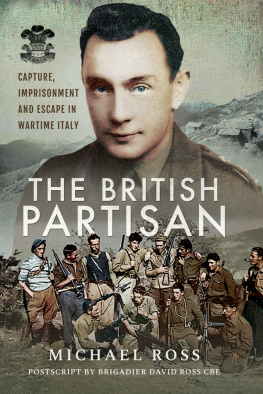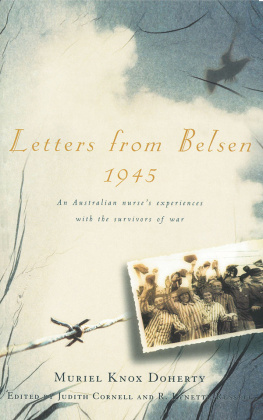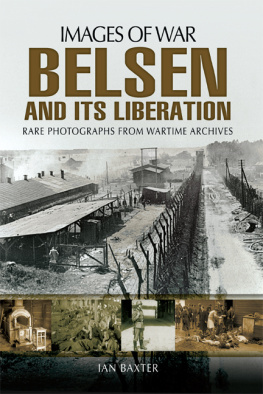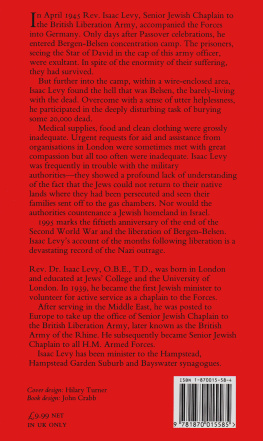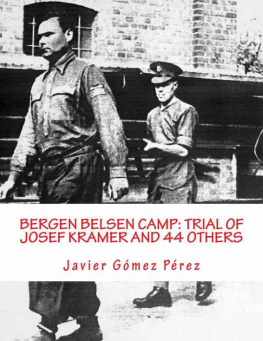Contents
TRANSWORLD PUBLISHERS
6163 Uxbridge Road, London W5 5SA
www.penguin.co.uk
Transworld is part of the Penguin Random House group of companies whose addresses can be found at global.penguinrandomhouse.com

First published in Great Britain in 2014 by Mainstream Publishing
Copyright John Randall and M J Trow, 2014
John Randall and M J Trow have asserted their right under the Copyright, Designs and Patents Act 1988 to be identified as the authors of this work.
A CIP catalogue record for this book is available from the British Library
Version 1.0 Epub ISBN 9781780578347
ISBN 9781780576671
This ebook is copyright material and must not be copied, reproduced, transferred, distributed, leased, licensed or publicly performed or used in any way except as specifically permitted inwriting by the publishers, as allowed under the terms and conditions under which it was purchased or as strictly permitted by applicable copyright law. Any unauthorized distribution or use of this text may be a direct infringement of the authors and publishers rights and those responsible may be liable in law accordingly.
1 3 5 7 9 10 8 6 4 2
About the Book
In 1945, John Randall was the first Allied officer to enter Bergen-Belsen the concentration camp that would reveal the horrors of the Holocaust to the world. Now in his 90s, Randall was one of that league of extraordinary gentlemen handpicked for suicidally dangerous missions behind enemy lines in North Africa, Italy, France and Germany throughout the Second World War.
He was a man of his class and of his times. He hated the Germans, liked the French and was unimpressed by the Americans and the Arabs. He was an outrageous flirt, as might be expected of a man who served in Phantom alongside film stars David Niven and Hugh Williams. He played rugby with Paddy Mayne, the larger-than-life colonel of the SAS and winner of four DSOs. He pushed Randolph Churchill, son of the Prime Minister, out of an aeroplane. He wined and dined in nightclubs as part of the generation that lived for each day because they might not see another.
This extraordinary true story, partly based on previously unpublished diaries, presents a different slant on that mighty war through the eyes of a restless young man eager for action and adventure.
About the Authors
After his wartime career, John Randall ran a highly successful business training school and is now happily retired. Adored by his wife, children and grandchildren, he still has passionate feelings about the events he witnessed at the end of the war and is the quintessential English gentleman a quiet man of integrity and with a steely resolve that has carried him through his long and fascinating life.
Mei Trow is a military historian and the author of 60 books, his output covering detective fiction, true crime and historical biography.
Acknowledgements
The authors would like to thank everyone who has helped in the creation of this book.
For John Randall, in particular, for the love and support of his family, the Special Air Service Regiment, Jason Amber and the staff of the Special Forces Club.
For Mei Trow, in particular, the invaluable support of his wife Carol, his agent Andrew Lownie and Bill Campbell and his team at Mainstream.
PROLOGUE
The Gates of Hell
An ordinary road. A warm spring day, Somewhere in Germany. Lieutenant John Randall was actually 30 miles south of Luneburg Heath and forests of pines and silver birch clothed the road. There was something terrible about riding ahead of a main army, even though Randall and his driver, Corporal Brown, had been effectively doing this for months and all their training had been directed towards it. Like the horsed Light Cavalry of 50 years earlier, they were the eyes and ears of the main army, the van, the front line, the Forlorn Hope, whatever analogy military men have used over time. To say that they were exposed, alone and vulnerable does not begin to describe it. At any moment, behind any tree in those thousands of trees, there could have been a sniper, a Waffen SS unit, someone who had these two men of 1 SAS in the cross-hairs of his sights. It was April 1945 and Hitlers Third Reich was falling apart. That made some Germans desperate, bent on revenge, determined to take as many Allies as they could with them when they went down.
There were just the two of the Allies that day in an open-topped, khaki and green painted jeep, complete with twin Browning machine guns and a bazooka. The thing jolted in every rutted pot hole and jarred a mans spine to buggery. Of course, there were rumours of where the Germans were, confirmed or not confirmed by aerial reconnaissance. But the retreat was happening so fast now that reconnaissance of the conventional type became pointless. They had chased the Wehrmacht all the way from the beaches of Normandy, through the long months of a French autumn and winter, and were now deep inside the invincible Reich itself. It had not been easy and anybody who thought taking on Hitler in his own backyard would be childs play was deeply deluded.
With Browns eyes pinned on the road, it was Randall who saw them first, a pair of huge gates to the right, the sunshine dappling on the curling wrought iron. They were wide open and beyond them a rutted path curved into the trees. He did not know what this was; some country house, perhaps, which the Wehrmacht had probably occupied long ago just as the British Army had tended to do back home. Randall told Brown to spin the wheel; they would take a look.
For the rest of his life, John Randall wished he had not made that decision. Because what he saw was the stuff of nightmare. And anybody who witnessed what these men did would have their lives changed by it. Everybody who saw what lay beyond those gates in the hours and days ahead was brought face to face with the most unimaginable evil. The Russian Red Army had seen it already as they drove into the Reich from the east, but at that stage the British had nothing to do with them and, anyway, their tales would not have been believed. No, a man had to see this place for himself. It had to be confronted they had to confront it because this was what they had gone to war for in the first place. What had Neville Chamberlain said in his speech to the nation on 3 September 1939? It is the evil things that we will be fighting against; brute force, bad faith, injustice, oppression and persecution. In essence, of course, he was right. But he had no idea.
From the day John Randall decided to turn into that gateway, the British perception of Germany and the Germans would never be the same again.
The first thing he noticed was the potential danger. It became instinctive in a unit like 1 SAS; men developed a nose for it. The drone of an engine, the snap of a twig, a passing civilian with a weapon-shaped bulge under his coat. This particular danger was more obvious; SS guards in their field grey and caps with deaths head badges, watching them. Brown drove slowly, at perhaps three miles an hour. Randall had his pistol in his hand, but already he could count more than the clip held. Would he have time to reload in the event of a firefight? Could he swing the Brownings into action or even grab the bazooka in time? The peculiar thing was that the guards showed no sign of fight at all. The gates and the barbed wire told the men of 1 SAS that this was some sort of camp, so perhaps the men they met were not the fanatical Waffen SS who had been ordered by their Fhrer to sell every foot of ground with their lives. They were armed, certainly, but their rifles and machine guns lay idly by and they almost ignored the newcomers.
Next page
